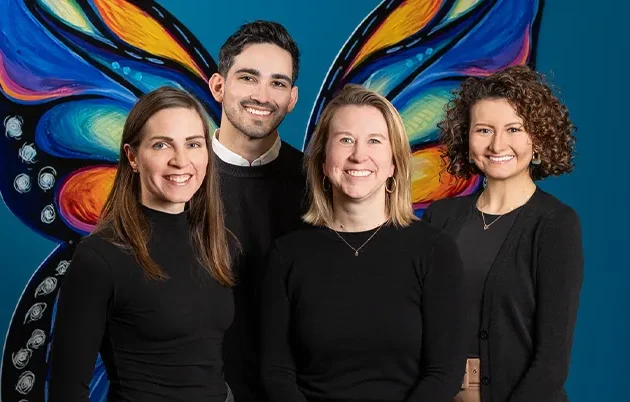In Memoriam: Ralph A. Hawley, Gloria Sarto, V. Craig Jordan, John E. Showalter
Ralph A. Hawley
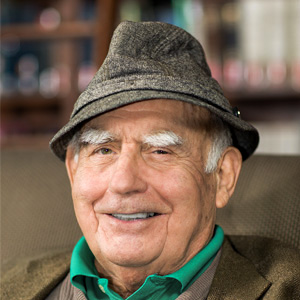
At age 97, Ralph A. Hawley died on May 10, 2024, in Oregon, Wisconsin. He was born and spent his youth in Stockbridge, Wisconsin, and later moved to Green Bay. He earned a bachelor’s degree in psychology from the University of Wisconsin–Madison, where he was selected for Phi Beta Kappa.
Following service in World War II, Hawley moved back to Green Bay, where he met and married Nell Hawley; they soon moved to Madison. In 1955, he was hired by then-dean John Bowers, MD, to be the business manager at the UW Medical School (now the UW School of Medicine and Public Health, or SMPH). Hawley soon became the first executive director of the Wisconsin Medical Alumni Association (WMAA) and was promoted to associate dean and assistant vice chancellor roles at the school. Having served SMPH for 34 years, Hawley retired in 1989, freeing up time to pursue his hobbies, including playing poker and golf; listening to jazz; and reading poetry.
After his retirement, WMAA created the Ralph Hawley Distinguished Community Service Award, which is bestowed annually upon MD alumni who have made outstanding contributions to their community through medical practice, teaching, research, or other humanitarian activities.
WMAA Executive Director Sarah B. Rothschild noted, “Ralph was the architect responsible for the lasting foundation of the Wisconsin Medical Alumni Association. He was a problem-solver whose solutions were the seeds of programs that continue to thrive at the UW School of Medicine and Public Health.”
To contribute to the Ralph Hawley WMAA Student Fund visit supportuw.org/giveto/HawleyFund
Gloria Sarto, MD ’58, PhD ’71 (PG ’63)
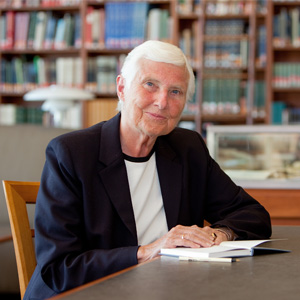
Emerita Professor Gloria Sarto, MD ’58, PhD ’71 (PG ’63), passed away on June 8, 2024. For nearly 60 years, she focused her remarkable intellect and sense of compassion on lifting the status of women’s health and health equity.
She earned her medical degree and a medical genetics doctoral degree at the University of Wisconsin School of Medicine and Public Health and completed an obstetrics and gynecology residency at UW Health. Sarto joined the Department of Obstetrics and Gynecology faculty in 1966; moved her career to Illinois and New Mexico for 22 years; and in 1998 returned to the same SMPH department.
Sarto treated countless women and delivered their babies; taught and mentored students, residents, and faculty members; and served as a national voice for women’s health-related curricula, research, and public policy. Her nationwide impact is immeasurable, said Ellen Hartenbach, MD, the Ben Miller Peckham, MD, PhD, Chair in Obstetrics and Gynecology.
Further, Sarto helped establish the National Institutes of Health Office of Research on Women’s Health, and she obtained funding for the Health Disparities Research Scholars Program. The latter, now based in the Department of Population Health Sciences, has received continuous federal funding and graduated more than 30 postdoctoral scholars. Recently, Sarto established the non-profit Foundation for Neighborhood Health Education to improve health literacy in Dane County.
According to Hartenbach, the Department of Obstetrics and Gynecology owes its health-equity-related leadership to Sarto. The department celebrates her impact with the annual Gloria Sarto Reproductive Health Equity Symposium, which she founded in 2005 to connect health care and population health professionals and community advocates. Faculty members carry on her legacy through the Gloria E. Sarto, MD, PhD, Chair in Women’s Health and Health Equity Research, an endowed professorship that supports academic leadership. Visit supportuw.org/giveto/SartoMemorial for details about how to support this chair.
V. Craig Jordan, PhD, DSc, FAACR
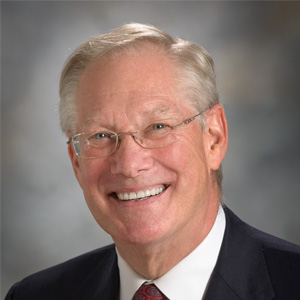
Craig Jordan, PhD, DSc, FAACR, considered the “father of tamoxifen” because he was the first researcher to identify the breast cancer prevention properties of that therapeutic drug, died on June 9, 2024, in Houston, Texas. He was 76 years old.
Born in Texas and raised in Britain, Jordan earned a doctorate in pharmacology from the University of Leeds, England. In 1977, he was a visiting investigator in the University of Wisconsin School of Medicine and Public Health’s Department of Human Oncology, and he joined the school’s faculty in 1980, rising to professor of human oncology and pharmacology and director of the Breast Cancer Research and Treatment Program at the UW Comprehensive Cancer Center (now the UW Carbone Cancer Center).
Jordan’s career focused on the treatment of hormone receptor-positive breast cancer, the most common subtype, and specifically on the development of selective estrogen receptor modulators. These medicines, discovered during Jordan’s tenure at UW–Madison, have improved women’s health by treating and preventing breast cancer and osteoporosis with the potential to prevent coronary heart disease and strokes.
Still used around the world, tamoxifen has been credited with saving millions of lives and preventing the development of breast cancer in women at high risk.
After he left UW–Madison in 1993, Jordan held faculty and leadership positions at Northwestern University, Chicago; Fox Chase Cancer Center, Philadelphia; Georgetown University, Washington, DC; and University of Texas MD Anderson Cancer Center, Houston.
“Dr. Jordan had an exemplary career that has impacted the lives of countless women with breast cancer,” said Paul M. Harari, MD, former chair of the Department of Human Oncology. “Many of his key discoveries took place at UW–Madison, and his research was subsequently translated into pivotal, international clinical trials.”
In May 2020, UW–Madison bestowed upon Jordan an honorary doctorate in recognition of his extraordinary accomplishments. Among his other honors, he was elected to the National Academy of Sciences and National Academy of Medicine.
John E. Schowalter, MD ’60
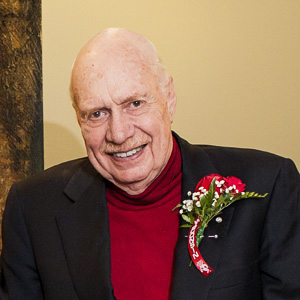
John E. Schowalter, MD ’60, passed away on June 20, 2024, in Hamden, Connecticut. Born, raised and educated in Wisconsin, he earned his medical degree from the University of Wisconsin School of Medicine and Public Health. He completed an internship in pediatrics, as well as his psychiatry and child psychiatry residency training at Yale University.
Schowalter achieved national and international recognition as a leader in his field. His psychiatry career focused on pediatric liaison, adolescent care, and professional training, and he has been recognized for outstanding clinical, academic, and research accomplishments.
After two years in the U.S. Army, Schowalter joined the faculty of the Yale Child Study Center, where he became a professor and, in 1989, became the first Albert J. Solnit Professor at Yale-New Haven Hospital/Yale University, where he worked for 40 years. He served as the center’s interim director in 2001-2002 and retired in 2003, but he continued to consult much longer.
Schowalter was involved in many national organizations, including the American Academy of Child and Adolescent Psychiatry (AACAP), for which he served as president. He formed and chaired the AACAP Member Group, which supports medical students and residents. The organization takes annual applications for the John E. Schowalter, MD, Resident Member of Council.
Schowalter was president of the Society of Professors of Child Psychiatry, the Benjamin Rush Society and other groups. He also chaired the Child Psychiatry Examination Committee of the American Board of Psychiatry and Neurology.
He received the Wisconsin Medical Alumni Association’s Medical Alumni Citation — Distinguished Alumni Award in 2014.
“Dr. Schowalter was a giant in child psychiatry,” said SMPH dean Robert N. Golden, MD. “In college, I had the enormous good fortune to enroll in his senior seminar in child development, an experience that propelled my interest in psychiatry. He will be dearly missed and always remembered.”
In Memoriam
Gloria Sarto, MD ’58, PhD ’71 (PG ’63)
June 8, 2024
Madison, Wisconsin
Jordan N. Fink, MD ’59
May 10, 2024
Mequon, Wisconsin
John E. Schowalter, MD ’60
June 20, 2024
Hamden, Connecticut
George M. Kopf, MD ’61
March 18, 2024
Zanesville, Ohio
Ronald O. Bergom, MD ’63
February 14, 2024
Bemidji, Minnesota
Joel J. Teplinsky, MD ’65
January 30, 2024
Encino, California
John F. Frost, MD ’71
March 26, 2024
Oconomowoc, Wisconsin
Michael A. Weiner, MD ’74
November 3, 2023
Madison, Wisconsin
Richard R. Heuser, MD ’76
May 23, 2024
Phoenix, Arizona
Meghan E. Hanson, MD ’06
March 22, 2024
Sheboygan, Wisconsin
Former Faculty and Staff Members
Ralph A. Hawley
March 10, 2024
Oregon, Wisconsin
Craig Jordan, PhD, DSc, FAACR
June 9, 2024
Houston, Texas
Robert A. Rancourt
April 4, 2024
Waunakee, Wisconsin

